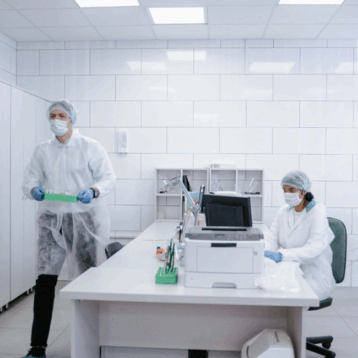
The healthcare sector has been experiencing changes due to the fusion of technology and the increasing need for efficient patient care. One significant advancement driving this shift is the adoption of virtual medical assistants (VMA) in hospitals. These digital aids enhance satisfaction, boost efficiency, and streamline hospital processes. Their advantages are diverse, and they have ranging impacts on both healthcare providers and patients.
Easing Administrative Challenges
A challenge healthcare establishments face is the administrative workload imposed on medical professionals. Tasks like scheduling, documentation, billing inquiries, and follow-ups consume time for healthcare providers. A virtual medical assistant can help alleviate this burden by automating many of these responsibilities. For example, a medical virtual assistant (MVA) can manage to schedule appointments, send reminders to patients, and handle cancellations effectively. This saves healthcare professionals time and reduces the risk of errors, ensuring that patients receive necessary follow-ups and care promptly.
Improving Patient Engagement
In a world where patient engagement significantly impacts health outcomes, MVAs facilitate communication between patients and healthcare providers. They can respond to patients’ inquiries, educate them on treatment procedures, and assist them throughout pre- and post-operative processes. Giving patients access to information about healthcare facilities can boost their satisfaction levels. Empower them to take charge of their health.
24/7 Accessibility
One significant benefit of assistants is their ability to operate around the clock. Unlike staff members, VMAs are not confined by working hours and can address patient concerns or assist with administrative tasks at any hour of the day. This constant availability proves valuable during emergencies or for individuals seeking information. Patients in different time zones can also engage with assistants in time for ongoing support and communication.
Improving Patient Check-in Processes
Checking in patients can often cause delays at healthcare facilities, leading to frustration for patients and staff. Utilizing Medical Virtual Assistants (MVAs) can help streamline this process by allowing patients to check in using apps or websites before their hospital visit. This pre-check-in system enables collecting information, updating histories, and even gathering payment details, ultimately reducing wait times upon arrival. Enhancing the check-in experience not only boosts efficiency but also improves patient satisfaction.
Enhancing Telemedicine Services
The increasing popularity of telemedicine has revolutionized healthcare delivery in a pandemic world. Medical virtual assistants support telemedicine appointments by assisting with patient triage, guiding individuals through the technology setup, and collecting data before consultations. This seamless integration facilitates a transition between virtual care settings, ensuring hospitals can offer comprehensive services regardless of the patient’s location.
Aiding Clinical Decision Making
Assistants can support healthcare professionals by offering clinical decision-making assistance based on patient data and established best practices. They can analyze records, identify irregularities, and issue required tests or vaccination reminders. By leveraging data, these virtual assistants contribute to maintaining standards of care and assist physicians in making well-informed decisions.
Clinical support is especially beneficial in fast-paced healthcare settings where information overload can lead to errors. Managing and reporting data accurately is crucial in healthcare operations. It can be challenging due to the amount of information processed daily. Virtual assistants designed for this purpose can help with tasks such as collecting and organizing data and generating reports. They can extract insights from health records (EHR) and create reports on patient outcomes, hospital efficiency, and other essential performance indicators. This feature enables hospitals to make decisions based on data analysis and pinpoint areas for enhancement. Elevate the overall quality of care.
Safety remains a priority in healthcare, and medical virtual assistants play a significant role in achieving this goal. By sending reminders for medication schedules, monitoring adherence to treatment plans, and promptly communicating test results, MVAs can help minimize potential risks. Moreover, they can flag reactions based on a patient’s medical history and current medications, strengthening the safety measures for patients receiving care.
In addition to promoting safety, MVAs contribute to customizing the healthcare journey according to each individual’s needs. By gathering and analyzing data specific to each patient, these virtual assistants offer tailored support and recommendations that cater to requirements.
For example, they can help patients remember their personalized treatment plans, recommend lifestyle changes, or provide customized materials. This individualized approach not only boosts involvement but also enhances overall health results.
Dealing with Language Barriers
In a society that is becoming more diverse, language obstacles can create hurdles in healthcare environments. Medical virtual assistants, with capabilities, can bridge this divide by enabling patients to communicate in their languages. This inclusivity fosters patient understanding and satisfaction, ultimately leading to improved adherence to treatment plans.
Cost Effective Advantages
Another appealing aspect of integrating assistants is the potential for cost savings. By streamlining tasks and improving efficiency, hospitals can lower staffing expenses and reduce errors that result in costly consequences. Moreover, by enhancing patient care and interaction, healthcare facilities may boost retention rates and referrals, thereby improving stability.
Future Possibilities and Obstacles
With the advancement of technology in healthcare, the scope of virtual assistants is set to expand. However, this progress comes with its set of challenges. As virtual assistants become more widespread, issues concerning data privacy, security measures, and the necessity for tailored solutions to align with hospital workflows need consideration.
Furthermore, it will be crucial to ensure that healthcare professionals receive training to utilize these tools effectively and maximize their advantages. By integrating the features with the touch, hospitals can establish a balanced setting where staff and patients thrive.
Conclusion
In summary, DocVA medical virtual assistants (MVAs) are set to revolutionize hospital care efficiency by alleviating tasks, enhancing involvement, and aiding in clinical decision-making. MVAs can improve the effectiveness of the healthcare system while emphasizing patient well-being and contentment. As hospitals increasingly incorporate these resources, they will be better prepared to address the evolving requirements of healthcare practices, ultimately resulting in improved patient results and operational efficiencies.










